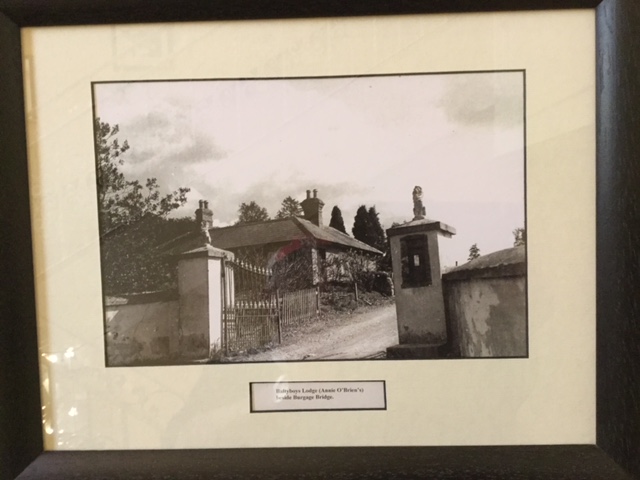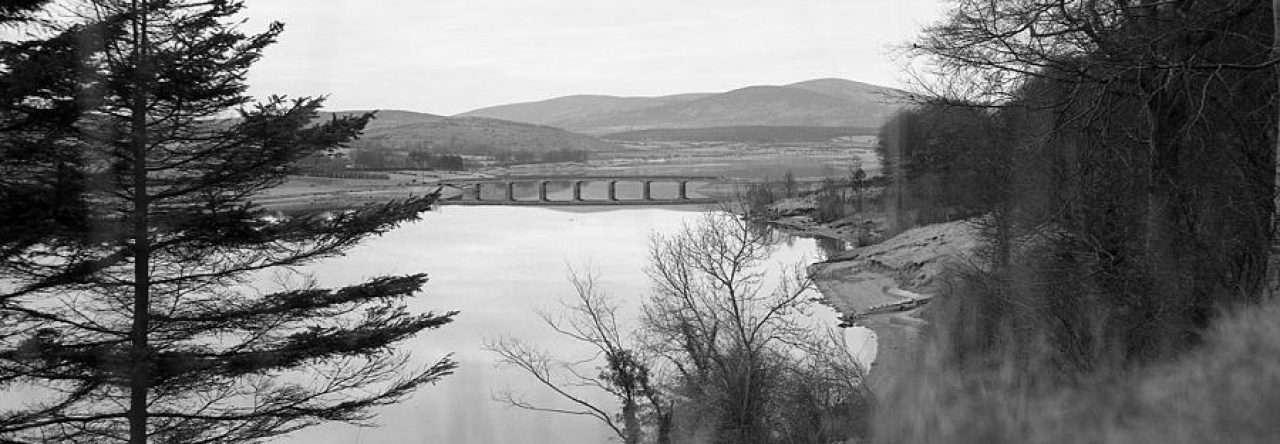

Annie O’Brien was born in Co. Wexford in the year 1874. In the 1901 Census her religion was shown as Roman Catholic, her position Domestic Servant and Parlour Maid at Baltiboys House. She could read and write and was not married. Like many of her generation she had been born into this way of life. When old enough she would enter service, and her whole life would be given to the inhabitants of what was known locally as “The Big House”. Eventually her role at Baltyboys was that of a stately house parlour maid, symbolised by her neat black dress, white cuffs and frilled apron. The standard white cap was her crowning distinction, and from its muslin bow the streamers cascaded down her back. Annie was tall and her head was swathed in fine strands of straight red hair. Her features had a sharp elegance. Though not sentimental she was given to a quick sympathy or a tender memory. Particularly did she cherish every bit of the family silver. Scattered sometimes haphazardly through the house she would be the one to retrieve any stray piece and return it to its place. When bedtime came there was often a visit from Annie to the nursery regions placed in the far end of the house. Through the night could be heard whispers from Annie, whispers shared over a cup of tea with the starched custodians of a nursery world of bygone days.
Then came the traumatic exodus of the family in the year 1905 to Walmer in the south east of England. Annie faced up to some years there with the family. She accepted her tiny new residence and her increased duties as a part of a different way of life. This new home registered no dignified life of its own–it was characterless.
The children were older now and able to study Annie’s personal reactions and opinions. They knew there was unrest in Ireland and that it involved them. So Annie was worth questioning, and her opinion objectively set out alongside all. Family loyalties in no way swayed the fact that Annie was a true Irish Nationalist at heart. Family servants in Ireland at that time spread their sense of love and duty. They managed to serve both their masters and their country with a philosophy that remained unshaken. Annie was a good Catholic and knew well enough all the political arguments involved. For Annie though there was forever her beloved Anglo-Irish family with its mix-up of a foot on each side of the Irish Sea, and so her head would continue to multiply its nods and shakes at the bad news reported from both sides. Thus the main stream of her quiet life flowed on, tied as it was to old Irish glass and silver to the answering of the children’s questions–for she had little wish, when in the land of her country’s enemies, to dwell at great length on all the things that had now come to pass.
During World War 1 she found herself once more back in Ireland. She had now become the trusted caretaker of the empty Big House. She wept alike at the Easter Rising and the death of the Master in France; the burning of the Four Courts and the destruction of other big houses that she had known in better days. She stayed on in her splendid detachment, sleeping some nights in the well loved house and other nights in the more friendly atmosphere of the lodge-keeper’s cottage at the entrance to the place. There were no voices now in the big house to keep her company; no silver and glass needed her care; no warm nursery fire in the evening with a nursery staff awaiting her visit. In the deserted labyrinth of kitchens and passages she no longer had reason to raise her voice to scold stray noisy stable boys. All was still. It was then that Annie announced that the house was haunted.
Did she not hear at night the most terrible riotous parties in the deserted servants’ hall, and was there not often sweet piano music to be heard in the drawing room? In her lonely walks along the heavily-wooded avenue did she not experience the vision of the White Lady flitting among the trees that stretched down to the river bank.
Then came the day when the house was at last sold, and Annie gave up everything including her ghosts. By this time Ireland had gained its hard fought freedom. Annie, though, was never free – not even after several years lived in Dublin with friends, relations and other old retainers. Yet again she returned to the family in England, to live out the last years of her life.
Annie died in a pleasant county hospital. Towards the end she could speak but little–yet at the sight of one of the family illumination never failed to return.
Perhaps Annie’s ghosts in the past had told her things to while away the dark nights when the Troubles raged in Ireland; when she had no company but the wind and the rain beating on the walls of the house. Perhaps they returned to remind her before her last voyage – before she was freed at last from her store of memories and images. (This story has been edited.)
Any comments or even criticisms would be welcome: To contact Jim Corley please click here

